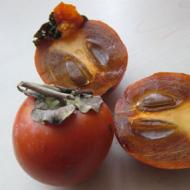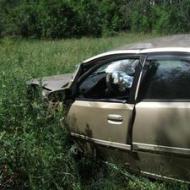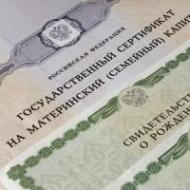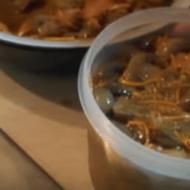
Страдательный залог в англ вопросы упражнения. Present Simple Passive
PASSIVE VOICE
Упр. 1. Раскройте скобки, употребляя глаголы в Present, Past или Future Simple Passive.
1. Bread (to eat) every day. 2. The letter (to receive) yesterday. 3. Nick (to send) to Moscow next week. 4. I (to ask) at the lesson yesterday. 5.I (to give) a very interesting book at the library last Friday. 6. Many houses (to build) in our town every year. 7. This work (to do) tomorrow. 8. This text (to translate) at the last lesson. 9. These trees (to plant) last autumn. 10. Many interesting games always (to play) at our PT lessons. 11. This bone (to give) to my dog tomorrow. 12. We (to invite) to a concert last Saturday. 13. My question (to answer) yesterday. 14. Hockey (to play) in winter. 15. Mushrooms (to gather) in autumn. 16. Many houses (to burn) during the Great Fire of London. 17. His new book (to finish) next year. 18. Flowers (to sell) in shops and in the streets. 19. St. Petersburg (to found) in 1703.
Упр. 2. Передайте следующие предложения в
Passive Voice,
обращая внимание на место предлога.
E.g. We often speak about her. - She is often spoken about.
1. We thought about our friend all the time. 2. The doctor will operate on him in a week. 3. The teacher sent for the pupil"s parents. 4. They looked for the newspaper everywhere. 5. Nobody slept in the bed. 6. The neighbour asked for the telegram. 7. Everybody listened to the lecturer with great attention. 8. The senior students laughed at the freshman. 9. The group spoke to the headmistress yesterday. 10. The young mothers looked after their babies with great care. 11. Nobody lived in that old house. 12. They sent for Jim and told him to prepare a report on that subject.
Упр. 3. Раскройте скобки, употребляя глаголы в
Active
или
Passive Voice.
1. Nobody (to see) him yesterday. 2. The telegram (to receive) tomorrow. 3. He (to give) me this book next week. 4. The answer to this question can (to find) in the encyclopedia. 5. We (to show) the historical monuments of the capital to the delegation. 6. You can (to find) interesting information about the life in the USA in this book. 7. Budapest (to divide) into two parts: Buda and Pest. 8. Yuri Dolgoruki (to found) Moscow in 1147. 9. Moscow University (to found) by Lomonosov. 10. We (to call) Zhukovski the father of Russian aviation.
Упр. 4. Передайте следующие предложения в Passive Voice.
1. I bought potatoes yesterday. 2. We shall bring the books tomorrow. 3. They are repairing the clock now. 4. They sell milk in this shop. 5. I have translated the whole text. 6. They broke the window last week. 7. When I came home, they had eaten the sweets. 8. We shall do the work in the evening. 9. He wrote this book in the 19th century. 10. They were playing tennis from four till five. 11. He stole a lot of money from the shop. 12. By six o"clock they had finished the work. 13. At twelve o"clock the workers were loading the trucks. 14. By three o"clock the workers had loaded the trucks. 15. We send our daughter to rest in the south every year. 16. They will show this film on TV. 17. They are building a new concert-hall in our street. 18. They have made a number of important experiments in this laboratory. 19. Livingstone explored Central Africa in the 19th century. 20. By the middle of autumn we had planted all the trees. 21. They will stage this play at the beginning of next season. 22. They have forgotten the story. 23. Has anybody explained the rules of the game to you? 24. They haven"t brought back my skates.
Упр. 5. Раскройте скобки, употребляя глаголы в Passive Voice.
1. I am sure I (to ask) at the lesson tomorrow. 2. They told me that the new student (to speak) much about. 3. The hostess said that one more guest (to expect). 4. The newspaper said that an interesting exhibition (to open) in the Hermitage the next week. 5. This new dictionary (to sell) everywhere now. 6. All the texts (to look) through yesterday and not a single mistake (to find). 7. Two reports on Hemingway"s stories (to make) in our group last month. Both of them were very interesting. 8. He said that Grandmother"s letter (to receive) the day before. 9. Two new engineers just (to introduce) to the head of the department. 10. Don"t worry, everything will be all right: the children (to take) to the theatre by the teacher and they (to bring) back to school in the evening.
Упр. 6. Переведите на английский язык, употребляя глаголы в Passive Voice.
1. Ее отправили в больницу два дня назад. 2. Вчера нас послали в лабораторию. 3. Это сочинение было написано на прошлой неделе. 4. Эту книгу взяли из библиотеки только вчера. 5. Этих трех студентов спросили два дня тому назад. 6. Вас экзаменовали утром? 7. Эта мышь была поймана ночью. 8. Телеграмму послали поздно вечером, и он получит ее только утром. 9. Эту статью должна прочитать вся группа. 10. Это
yпражнение можно написать карандашом. 11. Все ваши сочинения будут возвращены на будущей неделе. 12. Это письмо можно написать на одном листе. 13. На этой фабрике делают очень красивые сумки. 14. Письма туда можно посылать только летом, а телеграммы круглый год. 15. Мою подругу каждый год посылают за границу.
Пример: This library ... (build) in 1921. – This library was built in 1921.
- I can"t pay the fare, because my purse ... (steal).
- This irrigation project ... (finish) tomorrow.
- Sandra ... (drive) to work by her husband every day.
- My car ... (repair) at the moment.
- Are you going to make breakfast? No, it ... (make) by my brother.
Задание 2. Заполните пропуски предлогами by или with.
Пример: The pie was made ... the peaches. – The pie was made with the peaches.
- This manuscript was written ... unknown author many years ago.
- Peter was woken up ... the storm.
- My finger was cut ... a knife.
- Mary is being bandaged ... a nurse at the moment.
- The building will be decorated ... marble.
Задание 3. Переделайте предложение в страдательный залог.
Пример: Kate is writing an essay right now. – An essay is being written by Kate right now.
- The gangsters killed him yesterday morning.
- She hasn"t made the dinner yet.
- We should buy a new stove.
- I water the flowers every day.
- A postman has delivered an insured letter.
Задание 4. Поставьте глагол в скобках в действительный или страдательный залог.
Пример: Many women and children ... (hurt) in the car accident yesterday. –
Many women and children were hurt
in the car accident yesterday.
- I ... (remember) this story forever.
- These beautiful plants ... (grow) by my grandmother.
- The best wine ... (produce) in France.
- We ... (find) a corpse in his room.
- This ancient settlement ... (discover) by the famous archaeologist in 1925.
Задание 5. Выберите правильный вариант ответа.
- The room ... now.
a) is being cleaned
b) is being clean - The new shopping centre ... soon.
a) will opened
b) will be opened - My computer ... this week.
a) may be not repaired
b) may not be repaired - A thief ... yesterday.
a) was caught
b) has been caught - My food ... by waiter.
a) has been brought
b) has brought
Ответы с пояснениями
Задание 1.
- has been stolen
Говорящему важен результат – my purse has been stolen (мой кошелек украли, поэтому я не могу оплатить проезд). В подобных случаях, как правило, употребляется Present Perfect.
- will be finished
Обстоятельство времени – tomorrow (завтра) указывает на время Future Simple.
- is driven
Обстоятельство времени – every day (каждый день) указывает на время Present Simple.
- is being repaired
Сочетание at the moment указывает на время Present Continuous Tense.
- is going to be made
В данном случае необходимо обратить внимание на вопрос: Are you going to make breakfast? Говорящий отвечает, используя ту же конструкцию, что и в вопросе (to be going to).
Задание 2.
- by
Дополнение с предлогом by выражает действующее лицо или действующую силу – unknown author .
byДополнение с предлогом by выражает действующее лицо или действующую силу – the storm .
withДополнение с предлогом with выражает орудие действия – a knife .
byДополнение с предлогом by выражает действующее лицо или действующую силу – a nurse .
withУказывается материал/предмет, при помощи которого совершено действие – marble .
Задание 3.
- He was killed yesterday morning by the gangsters.
- The dinner hasn"t been made yet.
- A new stove should be bought.
- The flowers are watered every day.
- An insured letter has been delivered by a postman.
Задание 4.
- will remember
В данном случае подлежащим является личное местоимение I , которое совершает действие. Поэтому употребляется действительный залог.
- were grown
Предмет these beautiful plants подвергается действию (цветы выращивали), стоит на первом месте и является подлежащим. Поэтому употребляется страдательный залог. Также на страдательный залог указывает дополнение с предлогом by – by my grandmother.
- is produced
Предмет the best wine подвергается действию (вино производят), стоит на первом месте и является подлежащим. Поэтому употребляется страдательный залог.
- have found
В данном случае подлежащим является личное местоимение We , которое совершает действие (we have found – мы нашли). Поэтому употребляется действительный залог.
- was discovered
Предмет settlement подвергается действию (поселение было найдено), стоит на первом месте и является подлежащим. Поэтому употребляется страдательный залог.
Задание 5.
- a
Clean – это правильный глагол, в страдательном залоге должна быть форма cleaned .
bПассивный залог образуется с помощью вспомогательного глагола to be , поэтому верный ответ – b.
bЕсли вспомогательный глагол употреблен в сложной форме (have been, may be и т.д.), то частица not ставится после первого вспомогательного глагола.
aСлово yesterday указывает на употребление времени Past Simple.
aПассивный залог образуется с помощью вспомогательного глагола to be , поэтому верный ответ – a.
Раскройте скобки , употребляя глаголы в Present, Past или Future Simple Passive.
1. Bread (to eat) every day. 2. The letter (to receive) yesterday. 3. Nick (to send) to Moscow next week. 4. I (to ask) at the lesson yesterday. 5. I (to give) a very interesting book at the library last Friday. 6. Many houses (to build) in our town every year. 7. This work (to do) tomorrow. 8. This text (to translate) at the last lesson. 9. These trees (to plant) last autumn. 10. Many interesting games always (to play) at our PT lessons. 11. This bone (to give) to my dog tomorrow. 12. We (to invite) to a concert last Saturday. 13. My question (to answer) yesterday. 14. Hockey (to play) in winter. 15. Mushrooms (to gather) in autumn. 16. Many houses (to burn) during the Great Fire of London. 17. His new book (to finish) next year. 18. Flowers (to sell) in shops and in the streets. 19. St. Petersburg (to found) in 1703.
Passive Voice, обращая внимание на место предлога.
E.g. We often speak about her. - She is often spoken about.
1. We thought about our friend all the time. 2. The doctor will operate on him in a week. 3. The teacher sent for the pupil"s parents. 4. They looked for the newspaper everywhere. 5. Nobody slept in the bed. 6. The neighbour asked for the telegram. 7. Everybody listened to the lecturer with great attention. 8. The senior students laughed at the freshman. 9. The group spoke to the headmistress yesterday. 10. The young mothers looked after their babies with great care. 11. Nobody lived in that old house. 12. They sent for Jim and told him to prepare a report on that subject.
Передайте следующие предложения в Passive Voice.
E.g. Mother waters the flowers in the evening.
The flowers are watered in the evening (by Mother)
1. A marble pavillion protects the house. 2. The boys will paint the roof of the house. 3. Tom Sawyer whitewashed the fence. 4. Her daughters gave her three beautiful dishes as a birthday present. 5. Tom gave Nick a book for his birthday. 6. Our mother tells us stories every evening. 7. Lydia will show you a new book of pictures. 8. A boy showed her the way. 9. They will send us a box of fruit. 10. Five or six small children followed them. 11. In summer the boys often drive the horses to the fields. 12. Ivan Susanin led the Poles into the thickest part of the forest. 13. The waves carried the boat away. 14. We shall do the translation in the evening. 15. They water the flowers regularly. 16. You promised me these books long ago, 17. Bessie"s father gave her a complete set of Walter Scott"s works. 18. Irene"s husband brought her some beautiful shells from the south. 19. The explorers gave the newspaper reporters a long interview. 20. Mr. Wilson will teach you English. 21. The doctor ordered me a month"s rest from studying.
Раскройте скобки , употребляя глаголы в Active или Passive Voice.
1. Nobody (to see) him yesterday. 2. The telegram (to receive) tomorrow. 3. He (to give) me this book next week. 4. The answer to this question can (to find) in the encyclopedia. 5. We (to show) the historical monuments of the capital to the delegation. 6. You can (to find) interesting information about the life in the USA in this book. 7. Budapest (to divide) by the Danube into two parts: Buda and Pest. 8. Yuri Dolgoruki (to found) Moscow in 1147. 9. Moscow University (to found) by Lomonosov. 10. We (to call) Zhukovski the father of Russian aviation.
V1 Передайте следующие предложения в Passive Voice.
1. At twelve o"clock the workers were loading the trucks. 2. By three o"clock the workers had loaded the trucks. 3. We send our daughter to rest in the south every year. 4. They will show this film on TV. 5. They are building a new concert-hall in our street. 6. They have made a number of important experiments in this laboratory. 7. Livingstone explored Central Africa in the 19th century.8. By the middle of autumn we had planted all the trees. 9. They will stage this play at the beginning of next season. 10. They have forgotten the story. 11. Has anybody explained the rules of the game to you? 12. They haven"t brought back my skates.
V 2 Передайте следующие предложения в Passive Voice .
1. I bought potatoes yesterday. 2. We shall bring the books tomorrow. 3. They are repairing the clock now. 4. They sell milk in this shop. 5. I have translated the whole text. 6. They broke the window last week. 7. When I came home, they had eaten the sweets. 8. We shall do the work in the evening. 9. He wrote this book in the 19th century. 10. They were playing tennis from four till five. 11. He stole a lot of money from the shop. 12. By six o"clock they had finished the work.
V3 Передайте следующие предложения в Passive Voice.
1. The students greeted the famous lecturer warmly. 2. They have recently built a huge plant, in the town of N. 3. We must finish the work by tomorrow. 4. When I fell ill, my mother sent for the doctor. 5. They looked for the girl everywhere. 6. They did not listen to the boy. 7. She looks after the patients well. 8. They asked for our address. 9. My father looked through these papers this morning. 10. He will give my brother English lessons. 11. A friend of his has shown me an interesting magazine. 12. His friend told him everything.
V 4 Передайте следующие предложения в Passive Voice .
1. They showed Helen the nearest way to the theatre. 2. He gave his patient some good advice. 3. Mary has told me the news. 4. The people looked at the little boy with interest.5. They examined the paper attentively. 6. We asked him about his holidays. 7. They have already discussed the novel. 8. He did not give me his address. 9. She showed him the way to the metro station. 10. He will introduce me to his friends. 11. They are building a bridge over the river. 12. I haven"t yet translated the article.
V5 Передайте следующие предложения в Passive Voice.
1. We turn on the light when it is dark. 2. The students finished their translation in time. 3. Helen washed the dishes. 4. Betty often took her younger brother for a walk. 5. Mother has made some coffee. 6. Have you ironed your dress yet? 7. Nina mispronounced this word. 8. They have told her the truth. 9. She promised us an interesting entertainment. 10. One uses chalk for writing on the blackboard. 11. I shall finish my work about seven o"clock. 12. Somebody has opened the door.
V6 Передайте следующие предложения в Passive Voice.
1. They did not invite her to the party. 2. I did not leave the window open. 3. They did not turn off the light. 4. I have invited some friends to tea 5. She has given me an English book. 6. Have you written the letter yet? 7. They have told us a lot о S interesting things. 8. The students have written the test-paper without mistakes. 9. The children have scattered about a lot of things. 10. The girl has put all the books into the bookcase. 11. Snow, will cover the fields in winter. 12. They will hand in the homework tomorrow.
TEST
PASSIVE
FORM7
Choose the correct form.
1.America … by Columbus in 1498.
a). is discovered b). was discovered b). discovered
2.The houses … of stone and wood.
a) were built b)are built c). are being built
3.The article … already … .
a). had … been typed b). will be typed c). has … been typed
4.These letters … tomorrow.
a)are mailed b).were mailed c). will be mailed
5.The fish … very well.
a). was cooked b). had been cooked c). will be cooked
6.Moscow University … in 1755.
a). is founded b). was founded c).will be founded
7.Three foreign languages … in our school next year.
a). is taught b). was taught c). will be taught
8.The doctor … an hour ago.
a). send for b). is sent for c).was sent for
9.English … in many countries of the world.
a). is being spoken b). spoke c). is spoken
10.Most of the Earth’s surface(поверхность Земли ) … by water.
a). is covered b) coveres c) was covered
Запомнив когда и какой вспомогательный глагол используется, можно переходить к построению предложений. Очень эффективными считаются упражнения на Passive Voice, которые необходимо перестроить из активного залога. Их часто называют переделки.
Мы прекрасно знаем, что в страдательном залоге используются предлоги by, with, первый из которых показывает, что действие совершает одушевленное подлежащее, а второй - неодушевленное. Чтобы эта информация четко отложилась в памяти, проделайте хотя бы одно упражнение на эту тематику.
Когда вы отработаете все формы, все времена, пройдите комплексный тест Passive Voice , чтобы быть уверенным, что вы все правильно поняли.
Но и здесь есть несколько подводных камней. Например, пассивные конструкции, некоторые глаголы со страдательным значением. Если первые можно выучить наизусть, запомнить со временем, то последние очень часто вызывают затруднение. Необходимо анализировать предложение. Обязательно пройдите несколько упражнений (exercises) по данному вопросу.
Когда все эти этапы будут позади, вы будете уверены, что страдательный залог не просто пройден, а отложен в памяти надолго. Но не забывайте периодически повторять материал. Все со временем забывается, а язык и все его правила особенно. Научитесь жить с английским, проводить с ним время, и тогда у вас все получится.
1. Перепишите предложения из активного залога в пассивный
Nobody has used this room for ages.
We will give you the keys tomorrow.
Someone is interviewing Dr Johnson at the moment.
By the time I arrived, someone had already opened all your letters.
We usually talk briefly about the problems of the family at dinner time.
Ответы:
This room hasn’t been used for ages.
The keys will be given you tomorrow.
Dr Johnson is being interviewed at the moment.
By the time I arrived, all your letters had been already opened.
The problems of the family are usually talked briefly at dinner time.
2 . Выберите правильный вариант
1. This theatre … (build) over 100 years ago.
a. had been built
b. has been built
c. was built
2. Is your car still for sale? - No. It … already (sell).
a. has been sold
b. had been sold
c. was sold
3. Sometimes mistakes … (make).
a. are made
b. are being made.
c. have been made
4. For the past few days I (work) in Jack’s office, as my own … (decorate).
a. have been working/ is being decorated
b. worked/ decorated
c. am worked/ is being decorated.
5. While my friend … (talk) to me, his wallet .. (steal).
a. was being talked/ was being stolen
b. was talking/ was stolen
c. talked/stole
6. Where is your friend Bob? - - I don’t know. He … (not/ seen) resently.
a. hasn’t seen
b. didn’t see
c. hasn’t been seen
7. If someone … (report) you to the police, you … (make) to pay a big fine.
a. reports/ will be made
b. will report/ will make
c. is reported/ will be made
8. Professor … (give) another lecture at the same time next week.
a. will have been given
b. will be given
c. will give
9. Look at the dust in here! It … (look) as if this room (not/clean) … for a month.
a. is looked/ hasn’t cleaned
b. looks/ hasn’t been cleaned
c. has looked/ isn’t cleaned
10. The door … (open) and a young lady … (come in). It should be admitted that the door … (open) by herself.
a. opened/ came in/ was opened
b. was opened/ came in/ was opened
c. opened/ came in/ opened
Ответы :
3. Заполните пропуски предлогами with, by.
The hall was decorated … pink balloons.
The roof of the church will be repaired … local people.
This material has been already published … Cambridge University Press.
The house was built … money that he had borrowed from the bank.
When the the accident happened, the car was brought … police.
Ответы:
with
with
Упражнения на тему Present Simple Passive предлагаются с ответами (with answers) и идут от простых к более сложным. На сайте планируется большое количество упражнений на тему Passive Voice с ответами. Смотрите полезные ссылки внизу страницы.
Easy exercises on Present Simple Passive.
Упражнение 1 . Fill in the verb is or are.
- Grammar rules ... always learnt by heart.
- Rare animals ... protected in many countries.
- This scarf ... made by my granny.
- Animals in the reserve ... fed two times a day.
- The same shirts ... worn by all the members of our team.
- New Belarussian books ... shown in our library
- Many Belarussian towns ... described in this book.
- Dinner ... always cooked by my mother.
- This place ... crowded on Sunday.
- Our village ... surrounded with a forest.
Упражнение 2. Write true sentences in Passive Voice. Use the words in table.
|
sent via satellite. played in England. sold in music shops. made in Germany. used to access the Internet. |
|
invited to the concert brought in the morning cooked by my mother painted by my friend cleaned every day given text-books at school written in English not allowed to ride a motor-bike. grown in many countries. |
Упражнение 3 . Choose the correct form of the verb in brackets to complete the sentences.
- I ... (like / am liked) this place.
- What books by Charles Dickens ... (translated / are translated) into Belarussian?
- Who ... (protects / is protected) animals?
- This city ... (is visited / visited) by many people.
- Who ... (gives / is given) bad marks in your class?
- Our house ... (made /is made) of wood.
- Our holiday ... (is begun / begins) next week.
- Pupils ... (are given / give) textbooks by the teacher.
- The holiday ... (celebrated / is celebrated) every year.
Exercises on Present Simple Passive.
Level: Pre-Intermediate.
Упражнение 4 . Fill in the gaps using the Present Simple Passive Voice form of the verb in brackets.
Mushroom and Ham Salad
First, 5 mushrooms … (1 – cut) into small pieces and …(2 - mix) with two cut spring onions. Then, 100 g cooked ham …(3- cut) into fine cubes. Now, mushrooms, onions and ham … (4 - mix) in a bowl. Finally, 2 tablespoons of lemon juice … (5 - mix) with 1 tablespoon of soy sauce and the mixture… (6 - add) to the salad mixture. Enjoy your salad!
The news reporter and a camera operator _______ (1 – send) to investigate a news story. People_____ (2 – interview) by a reporter and the interviews ______ (3 – film) by a camera operator. The film ____ (4 – take) back to the TV studio, and the best parts of the film _______ (5 – choose) by the news editor. Finally, the news report ______ (6 – send) to televisions in people"s homes and the news _____ (7 – watch) by people all over the country.
My motherland is the Republic of Belarus. My country (1 – situate) in the centre of Europe. It (2 – make up) of six regions: Brest, Vitebsk, Gomel, Grodno, Minsk and Mogilev. Belarus (3 – not wash) by any seas or oceans, so it (4 – not separate) from other countries by seas and oceans. Belarus (5 – border) by five countries.
Belarus is mostly flat (плоская). Some uplands can (6 – find) near Minsk and in some districts of Mogilev and Grodno regions. Most of Belarus (7 – cover) by forests. It is a beautiful country with a lot of lakes.
Упражнение 5. Put the passive sentences in order.
- in a lot of schools / are / used / Computers
- of plastic / made / are / CDs
- seen / The information / on a screen/can be
- are / very quickly / The answers / calculated
- played / The game / is / on a computer
- with a modem / are / sent / E-mails
- is / on a disk / Information / stored
- sent / Text messages / are / using mobile phones
- to get information / used / is / The Internet
Упражнение 6. Respond to the situations with a negative sentence using the words and word combinations in brackets.
Cars are made at this factory, (bicycles)
But bicycles are not made at this factory.
- Bread is sold in this shop, (milk)
- Our house is built of wood, (their house)
- My books are kept on the shelf. exercise-books)
- My younger sister is usually given fruit and milk for supper, (my elder brother)
- Apples are grown in Belarus, (oranges)
- Glass is made of sand, (paper)
- My dresses are made by my mother, (jackets)
- Films are watched by many people, (sports programmes)
- This apple-tree is planted by me. (that cherry-tree)
- All the words are always learnt by the pupils. (rules)
Упражнение 7. Answer the questions in Simple Present Passive.
Is football played in the yard?
Yes, it is. It’s sometimes played in the yard.
No, it isn’t. It’s usually played in the field.
Is it played by boys or by girls?
It’s played by boys as a rule.
- Are you always given good marks?
- Is your friend also given good marks?
- Is your homework always done in time?
- Are you often given money by your parents?
- Is chess played by two or three people?
- Are you often punished at home?
- Are trees planted in summer or in autumn?
- Are you shown pictures at your English lessons?
- Are your exercise-books collected at the beginning or at the end of the lesson?
Упражнение 8. Ask for more information about the sentences using the words in brackets.
The children are left after the lessons.(why,how often)
Why are the children left after the lessons?
How often are the children left after the lessons?
- The game is won by our school team, (what game)
- The map is brought from England, (when)
- My books are not kept on the shelf, (why)
- School meetings are held every month, (where)
- The glass is filled with something, (what)
- Hockey is usually played by boys, (when)
- Oranges are not grown in Belarus, (why)
- The dinner is not yet served, (why)
- New rules are explained at the lesson, (by whom)
Exercises on Present Simple Passive. Level – Intermediate.
Упражнение 9. Answer the questions using the words in brackets.
- Do many tourists come to Britain? (is visited)
- Where is the ‘garden of England? (is situated)
- Does it snow in the mountains of Wales? (are covered with)
- What language do people in Scotland speak? (is spoken)
- Are there many seas around the country? (is surrounded by / is washed by)
- Do they make world-famous crafts and clothes in Scotland? (are made)
- Do many people know about the beautiful mountains and lakes of Wales? (are known all over the world)
- Why is the green colour a symbol of Northern Ireland? (is covered)
Упражнение 10. Make up questions in Simple Present Passive.
Упражнение 11. Change the verbs from Active into Passive.
The teacher helps the pupils.
The pupils are helped by the teacher.
They grow rice in India.
Rice is grown in India.
- I take books at the library.
- Boys play football.
- We clean our classroom after the lessons.
- The postman brings newspapers every day.
- They show American films every Sunday on TV.
- We keep the dog in the yard. .
- We give milk to our cat every day.
- We usually pick apples in September.
- He shows me his stamps each time when I come to his place.
- They use disks for storing information.
- They discover new planets every day.
- People give presents at Christmas.
- They speak Spanish in Peru.
- They tidy the classroom every day.
Упражнение 12. Change the sentences from Active into Passive. Then make questions about these sentences.
I keep my pet in the house.
My pet is kept in the house.
Where is your pet kept?
- We always write new words into our exercise books.
- Exercises follow every text.
- The pupils use the school library.
- Not all pupils wear the school uniform.
- The teacher gives us all the text-books.
- My mother washes my clothes.
Упражнение 13 . Write questions to the sentences
- The park is situated in the centre of the city, (what, where)
- The statue is made by a famous sculptor, (disjunctive)
- Demonstrations are held in this square, (what, where)
- The square is planned round the monument. (general)
- The obelisk is decorated with figures, (how)
- The tent is put up on a rock, (alternative)
Упражнение 14. Change the sentences from Active into Passive.
- Do they sell shoes in this shop?
- Do they bring tea from India?
- Do they teach English at your school?
- Do they make bicycles at this factory?
- Do they pay him a lot of money?
- Where do they sell bananas?
Упражнение 15. Translate into English.
- Слова написаны на доске.
- Эта книга продается во всех магазинах
- Ему часто отправляют письма?
- Когда приносят газеты?
- Этот парк всегда показывают туристам.
- Завтрак не дают в нашей школе.
- Эти тексты не учат наизусть.
Ответы:
Passive voice easy exercises.
Упражнение 1.
1 are, 2 are, 3 is, 4 are, 5 are, 6 are, 7 are, 8 is, 9 is, 10 is
Упражнение 2.
- BMW cars are made in Germany.
- CDs are sold in music shops.
- Tea is grown in India.
- Modems are used to access the Internet.
- Cricket is played in England.
- TV pictures are sent via satellite.
The house is built of stone
The children are not allowed to ride a motor-bike.
We are given text-books at school
The letter is written in English
The newspapers are brought in the morning
Dinner is cooked by my mother
The picture is painted by my friend.
The classroom is cleaned every day.
I am invited to the concert
Potatoes are grown in many countries.
Упражнение 3.
1 like, 2 are translated, 3 protects, 4 is visited, 5 is given, 6 is made, 7 begins, 8 are given, 9 is celebrated
Passive Voice Pre-Intermediate Exercises.
Упражнение 4.
А) 1 are cut, 2 are mixed, 3 is cut,4 are mixed, 5 are mixed, 6 is added
- B) 1 are sent, 2 are interviewed, 3 are filmed, 4 is taken, 5 are chosen, 6 is sent, 7 is watched
- c) 1 is situated, 2 is made up, 3 isn’t washed, 4 isn’t separated, 5 is bordered, 6 be found, 7 is covered.
Упражнение 5.
- Computers are used in a lot of schools.
- CDs are made of plastic.
- The information can be seen on the screen.
- The answers are calculated very quickly.
- The game is played on a computer
- E-mails are sent with a modem.
- Information is stored on a disk.
- Text messages are sent using mobile phones
- The Internet is used to get information.
Упражнение 6.
- But milk is not sold in this shop.
- But their house is not built of wood.
- But my exercise-books are not kept on the shelf.
- But my elder brother is not usually given fruit and milk for supper.
- But oranges are not grown in Belarus.
- But paper is not made of sand.
- But my jackets are not made by my mother.
- But sports programmes are not watched by many people.
- But that cherry-tree is not planted by me.
- But all the rules are not always learnt by the pupils.
Упражнение 7. Your own answers.
Упражнение 8.
- What game is won by our school team?
- When is the map brought from England?
- Why are my books not kept on the shelf?
- Where are school meetings held every month?
- What is filled with something?
- When is hockey usually played by boys?
- Why are oranges not grown in Belarus?
- Why is the dinner not served yet?
- By whom are new rules explained at the lesson?
Passive Voice Intermediate Exercises.
Упражнение 9. Your own answers.
Упражнение 10. Your own answers.
Упражнение 11. Possible answers.
- Books are taken at the library by me.
- Football is played by boys.
- Our classroom is cleaned by us after the lessons.
- Newspapers are brought by the postman every day.
- American films are shown every Sunday on TV.
- The dog is kept keep in the yard. .
- Our cat is given milk every day.
- Apples are usually picked in September.
- His stamps are shown to me by him each time when I come to his place.
- Disks are used for storing information.
- New planets are discovered every day.
- Presents are given at Christmas.
- Spanish is spoken in Peru.
- The classroom is tidied every day.
Упражнение 12. Possible answers.
- New words are always written by us into our exercise books.
Where are the new words written by us?
- Every text is followed by exercises.
What for is every text followed by exercises?
- The school library is used by pupils.
By whom is the school library used?
- The school uniform is not worn by all pupils.
Why isn’t the school uniform worn by all pupils?
- The text-books are given to us by the teacher.
What is given to us by the teacher?
- My clothes are washed by my mother.
By whom are my clothes washed?
Упражнение 13. Possible answers.
- What is situated in the centre of the city?
Where is the park situated?
- The statue is made by a famous sculptor, isn’t it?
- What is held in this square?
Where are the demonstrations held?
- Is the square planned round the monument?
- How is the obelisk i decorated?
- Is the tent put up on a rock or in the forest?
Упражнение 14.
- Are shoes sold in this shop?
- Is tea brought from India?
- Is English taught at your school?
- Are bicycles made at this factory?
- Is he paid a lot of money?
- Where are bananas sold?
Упражнение 15.
- The words are written on the blackboard.
- This book is sold in many shops.
- Is he often sent letters?
- When are the newspapers brought?
- This park is often shown to the tourists
- Breakfast is not served in our school.
- These texts are not learnt by heart.
Для начинающих предлагаю закрепить тему Passive Voice (в простых временах) и выполнить 10 упражнений для начинающих . Изучить тему
Для начала проверьте себя и переведите на английский язык предложение.
Passive Voice. Упражнения для начинающих
Упражнение 1. Переведите на русский язык.
- Breakfast was cooked by our mother.
- The new rule was explained to us at the English lesson.
- The story was written by Chekhov.
- This sports centre was visited by lots of people.
- This sports game is often played at P.E. lessons.
- The ball was thrown over the fence.
- The boxer was knocked down.
- I was born in Moscow.
- They will be trained by a famous coach.
- I will be sent to the competition.
Упражнение 2. Выберите правильный вариант и переведите на русский язык.
- The news programme ( is watched / watched ) by millions of people every day.
- The Mona Liza (painted / was painted) by Leonardo da Vinchi.
- The new cinema (be built / will be built ) next year.
- New pop groups ( are much spoken / is much spoken ) about among teenagers.
- Alexander Pushkin’s first poem ( was written / written) when he was fourteen.
- The letters (be sent / will be sent ) by post tomorrow.
- The translation (was finished / were finished ) two hours ago.
- London (visited / is visited) by hundreds of tourists every year.
- The dinner (be / will be) ready in an hour (через час).
- The dogs (were taken out/ was taken out) three times yesterday.
Упражнение 3.
- Tom always (to ask) at the lessons.
- I (to ask) at the last lesson.
- Our country house (to finish) next year.
- The dog (to find) by my sister yesterday.
- This work (to do) tomorrow.
- This text (to translate) at the last lesson.
- These trees (to plant) every autumn.
- Many interesting games always (to play) at our P.E. lessons.
- This bone (to give) to my dog tomorrow.
- We (to invite) to a concert last Saturday.
Упражнение 4. Раскройте скобки, употребляя глаголы в Present, Past или Future Simple Passive.
1. My question (to answer) yesterday. 2. Hockey (to play) in winter. 3. Mushrooms (to gather) in autumn. 4. Many houses (to burn) during the war. 5. His new book (to finish) next year. 6. Flowers (to sell) in shops and in the streets. 7. St. Petersburg (to found) in 1703.8. Bread (to eat) every day. 9. The letter (to receive) yesterday. 10. Nick (to send) to Moscow next week. 11. I (to give) a very interesting book at the library last Friday. 12. Many houses (to build) in our town every year.
Упражнение 5. Раскройте скобки, выбирая требующуюся форму глагола.
1. At the station they will (meet, be met) by a man from the travel agency. 2. She will (meet, be met) them in the hall upstairs. 3. The porter will (bring, be brought) your luggage to your room. 4. Your luggage will (bring, be brought) up in the lift. 5. You may (leave, be left) your hat and coat in the cloakroom downstairs. 6. They can (leave, be left) the key with the clerk downstairs. 7. From the station they will (take, be taken) straight to the hotel. 8. Tomorrow he will (take, be taken) them to the Russian Museum.
Упражнение 6. Раскройте скобки, употребляя глаголы в Present Simple, Present Perfect, Present Continuous, Past Simple, Future Simple. Используйте Активный и Пассивный залог.
- The house ____________(to build) in 2020.
- The boy _________ (not to hear) the news yet.
- The Brooks ___________(to become) famous last year.
- Money _____________(to keep) in the bank.
- The parcel __________(to send) yesterday.
- I would like ________________(to know) English very well.
- Where _________the road _______(to lead) to?
- Look! The leaves _______________(to fall).
- All the money ___________(to spend) on clothes last week.
- The pie has gone! Who _________(to eat) it?
Упражнение 7.
Переведите на английский язык
- Детей наказывают…. — Детей наказали… — Детей накажут…. (punish)
- Хлеб едят… — Хлеб съели… — Хлеб съедят…
- Розы выращивают… — Розы вырастили… — Розы вырастят… (grow)
- Картину рисуют… — Картину нарисовали… — Картину нарисуют… (paint)
- Обо мне говорят. — Обо мне говорили. — Обо мне будут говорить. (talk about)
- О нас забывают — О нас забыли…. — О нас забудут… (forget)
В пассивном залоге в английском предложении предлог ставится в конец.
ПРИМЕР. За доктором послали. — The doctor was sent for.
Упражнение 8. Переделайте предложения из активного залога в пассивный.
- We learn English. —
- The teacher asked the students a question. —
- They told me about the accident. —
- We will find our pets. —
- Next year we will learn French. —
- The teacher asked her a question. —
- I take my dog out every day. —
Упражнение 9.
- хвалить — praise
- рассказывать — tell
1. Я всегда хвалю моих друзей. 2. Меня всегда хвалят дома. 3. Каждую субботу папа показывает дедушке мои оценки. 4. Каждую субботу папе показывают мои оценки. 5. Мы часто вспоминаем вас. 6. Нас часто вспоминают в деревне. 7. Мне дают сок каждое утро. 8. Каждое утро я даю кошке молоко. 9. Он каждый день рассказывает нам что-нибудь интересное. 10. Ему каждый день рассказывают что-нибудь интересное.
Упражнение 10.
(из пособия «Грамматика. Сборник упражнений. Ю. Голицынский)
Переведите на английский язык, употребляя глаголы в Present Simple Active или Present Simple Passive.
1. Я часто посылаю письма друзьям. 2. Меня часто приглашают в кино. 3. Моей сестре часто помогают в школе. 4. Я иногда забываю взять проездную карточку. 5. Он пишет много писем. 6. Собаки любят кости. 7. Собак любят во многих семьях. 8. Когда в вашей семье пьют чай? 9. Почему эти правила всегда забывают? 10. Почему вы всегда забываете эти правила? 12. Где живут ваши друзья? 13. Где покупают хлеб? 14. Когда задают вопросы?
Упражнение 11.
(из пособия «Грамматика. Сборник упражнений. Ю. Голицынский)
Переделайте следующие предложения в Passive Voice. Начните с выделенного слова.
ОБРАЗЕЦ. Mother waters the flowers in the evening. - The flowers are watered in the evening (by Mother).
1. Irene’s husband brought her some beautiful shells from the south. 2. The explorers gave the newspaper reporters a long interview. 3. Mr. Wilson will teach you English. 4. Tom gave Nick a book for his birthday. 5. Our mother tells us stories every evening. 6. Lydia will show you a new book of pictures. 7. A boy showed her the way. 8. They will send us a box of fruit. 9. Five or six small children followed them . 10. We will do the translation in the evening.
















